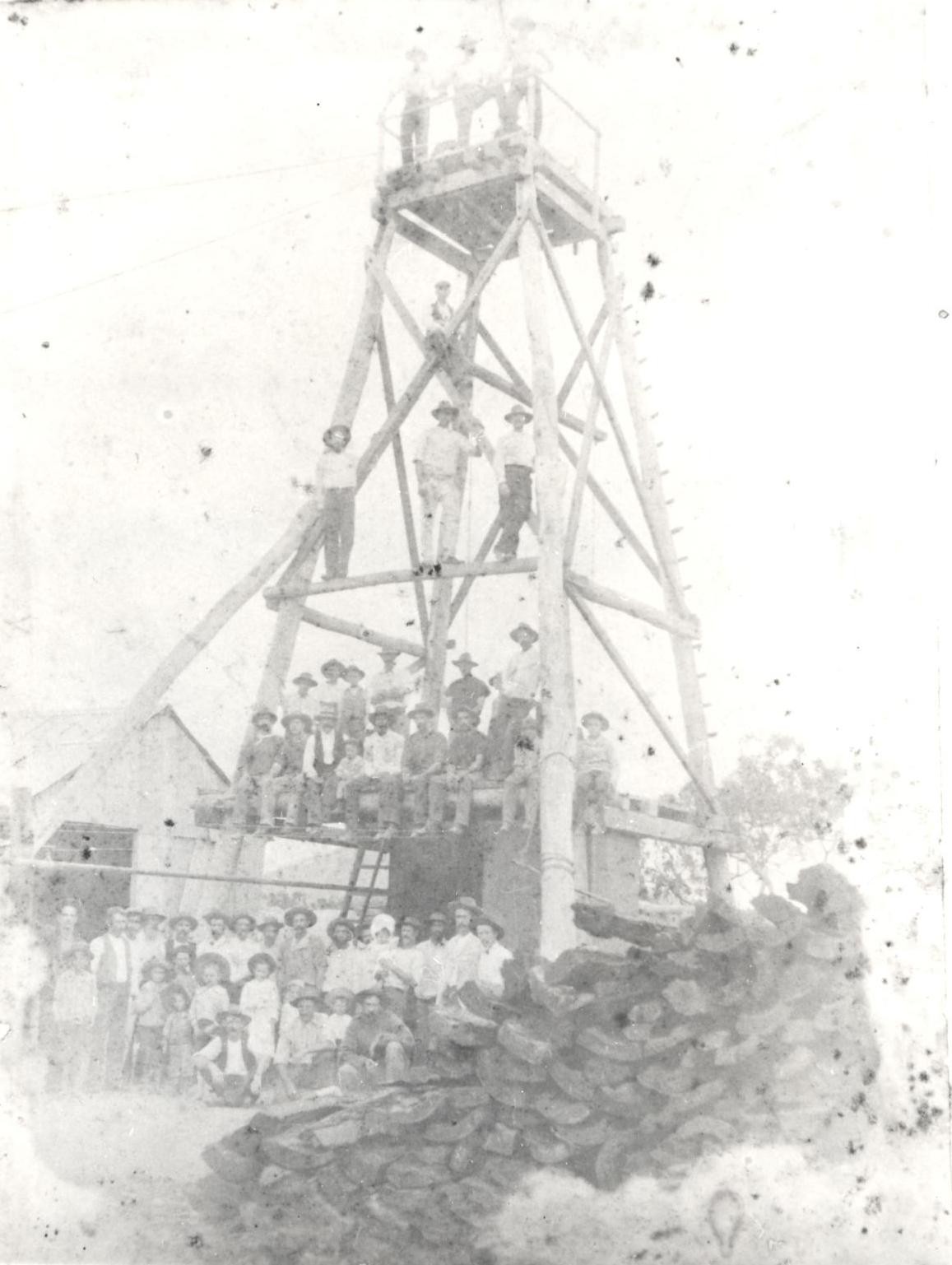The name of the town of Coen is said to have been derived from the Cape York Peninsula river of the same name. The river was originally named by the Dutch navigator Jan Carstensz, during his 1623 voyage through the region, in honour of the then Governor of the Dutch East Indies.
In the period following the Palmer River gold rush, from around 1873, further explorations to the north by a number of parties, eventually led to the discovery of alluvial gold on the Coen River. An access track was surveyed and cut through from Battle Camp in 1878 and by July of that year there were more than five hundred miners on the field. Coen’s population was to fluctuate during this early period with its isolation an on-going challenge to the town’s growth and development. Later, in the 1880s the area was made available for pastoral leases which, together with the harvesting of sandalwood, provided a welcome boost to the town’s economy. Mining however was still the main industry in the region and, as a consequence, the Coen Goldfield was officially proclaimed in 1892. Evidencing its growth and prosperity during this early period, the town had soon attracted a school, a school of arts, three hotels, a post and telegraph office as well as a range of shops and businesses.
As gold mining declined from around the 1930s, Coen still remained an important administrative and social centre for the surrounding Cape York communities. Also, during the Second World War, Coen was an important part of the forward defence network. Isolation was however still a challenge, in particular in regard to communication, with one of the last pack horse runs in Queensland operating out of Coen as late as the 1950s. As well, until the 1960s, when the Weipa-Bamaga area was developed, Coen was the most northerly town on Cape York Peninsula.

This photograph, dating from around 1905, shows the Great Northern Mine at Coen.
Today, Coen remains an important regional service centre for the various communities in the area, local pastoralists as well as supporting the area’s tourist industry.
Brian Randall - Queensland Places Coordinator, State Library of Queensland
Comments
Your email address will not be published.
We welcome relevant, respectful comments.